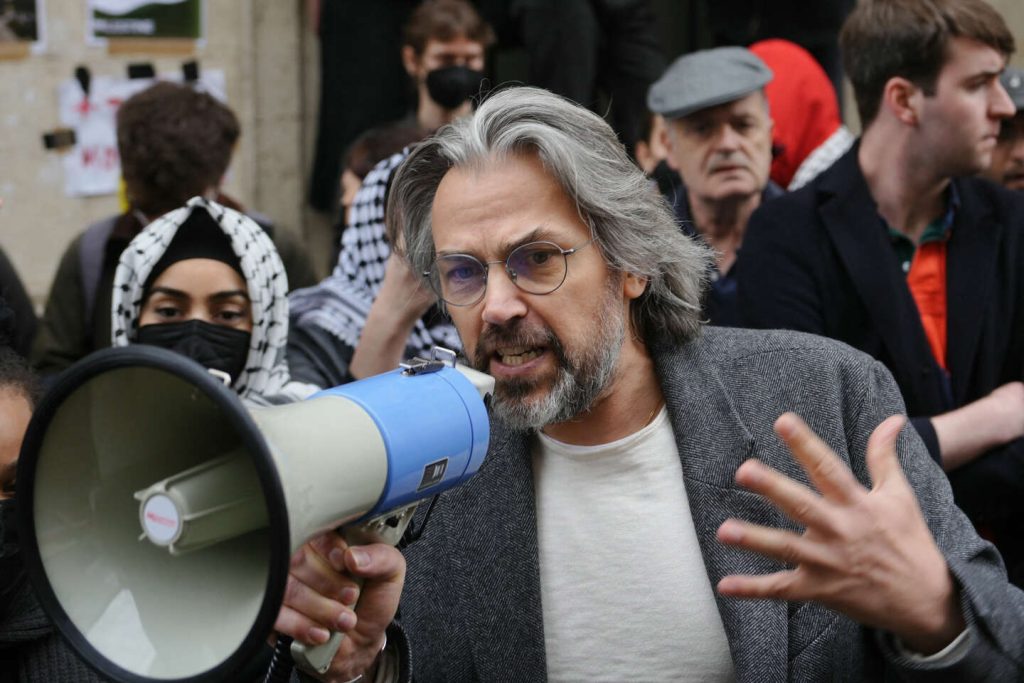During an event at the French National Assembly on May 29, horrifying images from Gaza were projected for an hour and thirty-two minutes. Only a few deputies, mostly from the left, some from the majority, and two from the National Rally (RN) party, attended the screening of the film entitled “Gaza since October 7”, which documents the seven months of Israeli attacks on the Palestinian territory following Hamas’ attacks on Israel on October 7, 2023. The film, presented by the France Unbowed (LFI) member Aymeric Caron, aims to show the daily lives of residents subjected to Israeli strikes. The images, collected mainly from social networks by journalists, photographers, filmmakers, healthcare workers, and Gaza residents, are not blurred and have been verified by Caron and his team, with no images of Hamas included.
Caron emphasized that the film focuses solely on the plight of the people in Gaza, without depicting any actions by Hamas. After the screening, Rodrigo Arenas, one of the eight LFI members present, expressed deep emotion, stating that the film is extremely violent but reflects the harsh reality. He questioned what actions France should take, considering the current untenable position held by the country. The decision to focus solely on the people of Gaza did not go unnoticed, with some criticizing the omission of Hamas from the narrative. Julien Odoul, a deputy from RN, acknowledged the impact of the images but pointed out Hamas as the missing responsible party in the depiction of events since October 7, 2023.
The approach taken by Caron was compared to a previous event organized by Mathieu Lefèvre, a deputy from the Val-de-Marne region, who showed a film produced by Israeli authorities showcasing the massacres committed by Hamas on October 7 in Israel. The screening drew a large crowd of deputies, including Caron. Seven months later, Caron expressed disappointment at the lack of interest in the fate of Gazans by the Assembly. This perceived lack of attention to the suffering of Palestinians sparked discussions about victimhood and responsibility, with differing perspectives on who should be held accountable for the ongoing conflict.
The contrasting reactions to the two screenings highlight the complex nature of the Israeli-Palestinian conflict and the varying interpretations of events. The emotional impact of the images presented in the film stirred debates on political positions and diplomatic responses to the situation in Gaza. The attendance at the event, particularly the absence of a significant portion of deputies, raised questions about the international community’s engagement with the conflict and the ways in which different narratives are portrayed. The film screening served as a platform for reflection on the ongoing violence and suffering in Gaza, challenging political leaders and policymakers to reevaluate their roles in promoting peace and security in the region.


